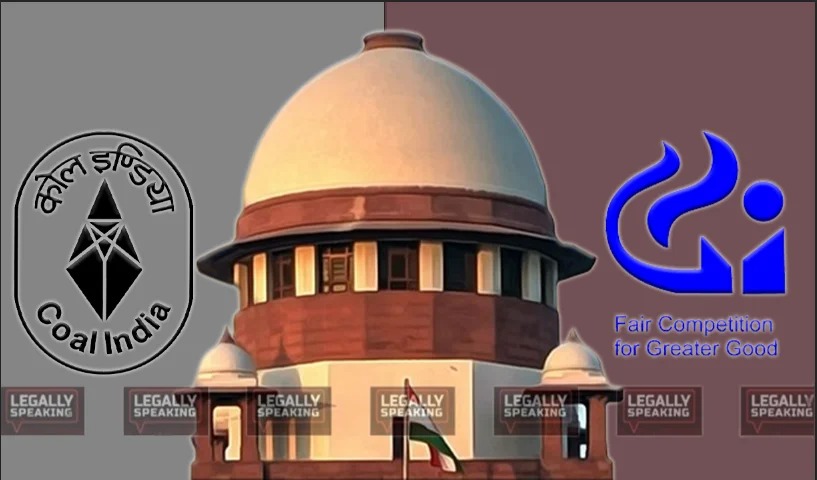
The Supreme Court on Thursday ruled that the Competition Act of 2002 is applicable to the public sector company, Coal India Limited.
The judgment was delivered by a bench comprising Justice KM Joseph, Justice BV Nagarathna, and Justice Ahsanuddin Amanullah.
The bench rejected the Coal India’s argument that the Competition Act does not apply to them due to the Coal Mines (Nationalisation) Act.
The verdict was a result of a series of appeals, with Coal India leading the plea to challenge a December 2016 decision of the former Competition Appellate Tribunal (COMPAT).
The COMPAT had dismissed Coal India’s challenge against an October 2014 order issued by the Competition Commission of India (CCI).
The CCI had found Coal India guilty of abusing its dominant position in the production and supply of non-coking coal to thermal producers, thereby contravening the provisions of the Competition Act.
Notably, the Competition Commission of India (CCI) had instructed Coal India to discontinue its anti-competitive practices.
Initially, a penalty of ₹1733.05 crore was imposed, but it was later reduced to ₹591.01 crore after the matter was sent back for reconsideration in the first round of legal proceedings by the COMPAT.
The CCI took action based on the information provided by Sai Wardha, a coal-fired thermal power generation company located in Maharashtra.
Additionally, complaints were received from various entities including Maharashtra Generating Company Limited, Gujarat State Electricity Corporation Limited, Madhya Pradesh Power Generating Corporation Limited, West Bengal Power Development Corporation Limited, and the Sponge Iron Manufacturers Association.
The thermal companies alleged that Coal India Limited (CIL) had deliberately delayed the execution of fuel sales agreements that they were compelled to sign, taking advantage of its effective monopoly position.
They argued that these agreements were anti-competitive since they had no bargaining power or ability to negotiate. The thermal companies further claimed that Coal India had raised the price of coal from ₹1,631 per metric tonne to ₹2,177 per metric tonne without any valid justification, and had engaged in discriminatory pricing practices.
During the proceedings in the Supreme Court, Coal India, represented by Senior Advocate and former Attorney General KK Venugopal, contended that its operations, governed by the Coal Mines (Nationalisation) Act, fell entirely outside the scope of the Competition Act.
The Competition Commission of India (CCI), represented by Additional Solicitor General (ASG) N Venkataraman, countered this argument and highlighted that there was no constitutional challenge against any provision of the Competition Act. The ASG stated that Coal India unilaterally determined coal prices and supplied substandard coal to power companies.
The hearings also involved discussions regarding the concept of “common good” as mentioned in Article 39 of the Constitution, with the CCI asserting that Coal India could not employ this principle as a shield in such cases.




